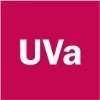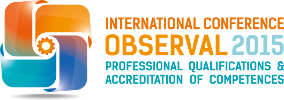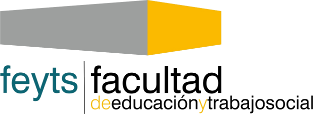Papers
|
Oral communications: Research and theoretical papers, individual or group experiences will be presented to share them with an audience interested in these contributions. In this public oral presentation modality, delegates will have the opportunity of sharing their experiences, and their research or practical experience results. |
|
|
Instructions for authors: (they will be presented in brief) |
|
|
Instructions for abstracts:
Content organization of abstracts:
Remember that if it is written carefully, the proper evaluation by the scientific Committee will be easier. A brief description of the content will help for a rigorous and satisfactory assessment for your interests |
Fields & Topics
View and choose the following fields and topics they can be presented in this participation modality in each of the sections of the conference:
Professional qualifications
- Job analysis
- National Catalogue of Qualifications
- European Skills Competences
- Qualifications and Occupations (ESCO)
- Qualifications Framework
- European Quality Assurance in Vocational Education and Training (EQAVET)
- European Qualifications Framework for the lifelong training (EQF)
- Occupations and labour market
- New qualifications
- European Credit system for Vocational Education and Training (ECVET)
Accreditation of competences
- Procedure notifications (modalities, competence units, certificates of professionality, vocational education and training)
- Costs of accreditations of competence
- Training of counsellors and evaluators for the procedure
- Accreditation procedures (counselling, evaluation, accreditation, and registration)
- Recognition of learning outcomes
- Techniques for the evaluation of competences
Lifelong learning
- Continuing education and training
- Lifelong learning
- Formal learning / Informal learning / non-formal learning
- Key skills / basic skills / new skills
- Adult education
- Training of trainers
- Training provider
Guidance and skills audit
- Skills audit
- Employability
- Europass (European Skills Passport)
- Professional experiences of career guidance
- Guidance and counselling career training
- Guarantee of the quality in the guidance services
- Education or training itineraries / Job placement itineraries
- Labour guidance itineraries
- Guidance models and techniques
- Guidance and counselling / Information, guidance and counselling
- Job placement workshops



